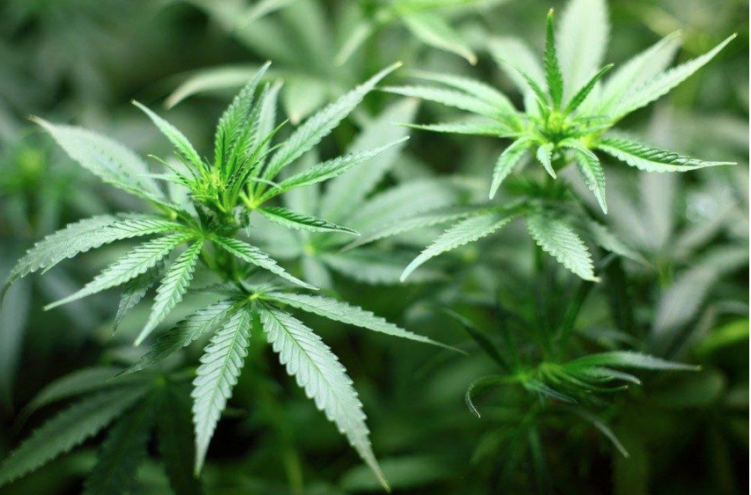The history of medicinal cannabis has a long track record in many civilizations across the world. In recent years, it has seen increased recreational use for recreational purposes which are geared to achieve homeostasis or the body’s balance. However, for various states, the legality of cannabis still falls into a gray area.
In order to shed light on this matter, here are some insights on the cannabis laws and regulations, particularly in Michigan.

Medical Marijuana
Cannabis that is intended for medical purposes was legalized in Michigan in November of 2008. Ten years after, voters passed a proposal to legalize the use of recreational cannabis. It follows that after its legalization, the very first licensed Michigan Dispensary of marijuana opened up to offer not only cannabis but also concentrates and edibles. Not only does the dispensary cater to marijuana for medical uses, but also for recreational purposes.
Qualifying Patients
The patients who are qualified to acquire medical marijuana are those with a debilitating medical condition, such as Alzheimer’s disease, Crohn’s disease, severe, chronic pain and seizures, as well as those with cancer to name a few. The patients must obtain a certification from a doctor of osteopathy, stating that they are indeed suffering from these debilitating conditions. It is only when they have the proper certification in hand that they can get hold of medical marijuana.
Consumption
Even if recreational marijuana has been legalized, public consumption is still greatly prohibited in the region. Individuals who need to consume cannabis for medical or recreational purposes must do so following the Michigan Medical Marijuana Act. This act states that the consumption of cannabis must only occur on a private property which is out of view of the public.
Possession
According to Michigan law, adults who are over the age of 21 can possess up to 2.5 ounces of marijuana for recreational purposes outside of their home, and up to ten ounces inside their home. They also have the capability to cultivate up to a dozen cannabis plants in their home. However, they must not possess more than 15 grams of marijuana concentrate at any given time.
On the other hand, individuals who need medical marijuana can possess up to 16 ounces of marijuana-infused products in solid form. In gaseous form, they can only possess up to seven ounces, but in liquid form, they can possess up to 36 fluid ounces for personal use.
Purchase
As of the year 2019, Michigan residents already have the power to purchase cannabis for recreational purposes. There are three dispensaries in the region and they reserve the right to limit their sales based on the laws and regulations implemented in Michigan.

Cannabis can be used for medical and recreational purposes. It also has different byproducts that can prove to alleviate pain or enhance the overall well-being. However, the legality of its usage varies from one state to another. Just remember that in Michigan, medical marijuana has already been legalized since 2008 and cannabis for recreational usage has been legalized since 2018. There are also certain rules in terms of its possession and purchase that you should adhere to.


The history of medicinal cannabis has a long track record in many civilizations across the world. In recent years, it has seen increased recreational use for recreational purposes which are geared to achieve homeostasis or the body’s balance. However, for various states, the legality of cannabis still falls into a gray area.
In order to shed light on this matter, here are some insights on the cannabis laws and regulations, particularly in Michigan.
Medical Marijuana
Cannabis that is intended for medical purposes was legalized in Michigan in November of 2008. Ten years after, voters passed a proposal to legalize the use of recreational cannabis. It follows that after its legalization, the very first licensed Michigan Dispensary of marijuana opened up to offer not only cannabis but also concentrates and edibles. Not only does the dispensary cater to marijuana for medical uses, but also for recreational purposes.
Qualifying Patients
The patients who are qualified to acquire medical marijuana are those with a debilitating medical condition, such as Alzheimer’s disease, Crohn’s disease, severe, chronic pain and seizures, as well as those with cancer to name a few. The patients must obtain a certification from a doctor of osteopathy, stating that they are indeed suffering from these debilitating conditions. It is only when they have the proper certification in hand that they can get hold of medical marijuana.
Consumption
Even if recreational marijuana has been legalized, public consumption is still greatly prohibited in the region. Individuals who need to consume cannabis for medical or recreational purposes must do so following the Michigan Medical Marijuana Act. This act states that the consumption of cannabis must only occur on a private property which is out of view of the public.
Possession
According to Michigan law, adults who are over the age of 21 can possess up to 2.5 ounces of marijuana for recreational purposes outside of their home, and up to ten ounces inside their home. They also have the capability to cultivate up to a dozen cannabis plants in their home. However, they must not possess more than 15 grams of marijuana concentrate at any given time.
On the other hand, individuals who need medical marijuana can possess up to 16 ounces of marijuana-infused products in solid form. In gaseous form, they can only possess up to seven ounces, but in liquid form, they can possess up to 36 fluid ounces for personal use.
Purchase
As of the year 2019, Michigan residents already have the power to purchase cannabis for recreational purposes. There are three dispensaries in the region and they reserve the right to limit their sales based on the laws and regulations implemented in Michigan.
Cannabis can be used for medical and recreational purposes. It also has different byproducts that can prove to alleviate pain or enhance the overall well-being. However, the legality of its usage varies from one state to another. Just remember that in Michigan, medical marijuana has already been legalized since 2008 and cannabis for recreational usage has been legalized since 2018. There are also certain rules in terms of its possession and purchase that you should adhere to.
Related Content: